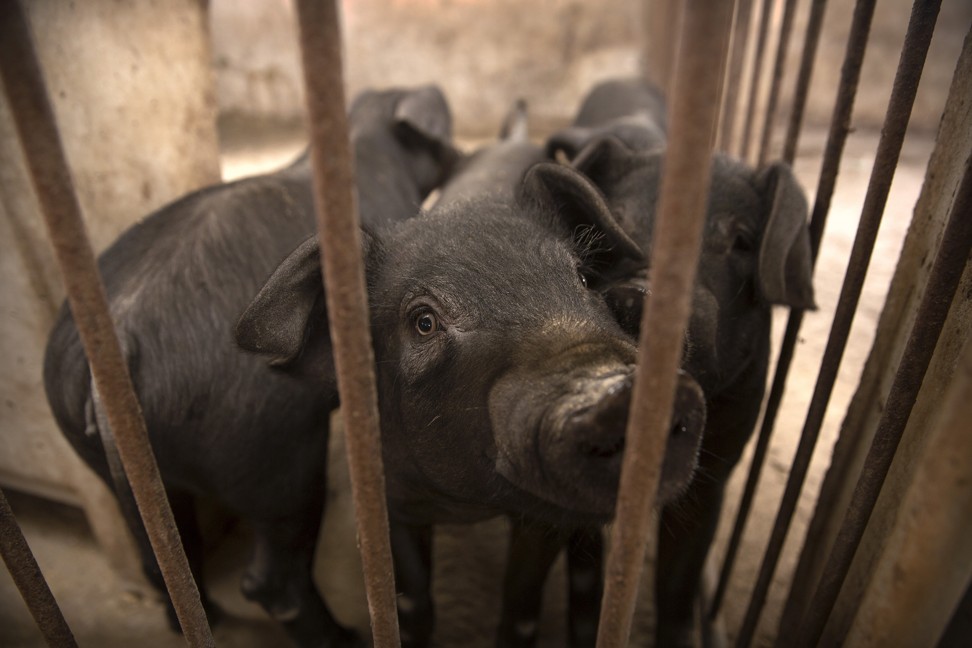Millions of pigs in Asia culled, as swine fever outbreak spreads across the region
- Since first being reported last August in China’s Liaoning province, it has been found in animals in Vietnam, Laos, Mongolia, Cambodia and North Korea, the UN Food and Agriculture Organisation said
- According to estimates by Netherlands’ Rabobank, 1 in 2 pigs in China will die, either after contracting African swine fever or from culling

Millions of pigs are being culled in China and Vietnam in an effort to stop the spread of African swine fever, with cases of the disease already reported in six Asian countries.
Some 2.8 million pigs, representing about 10 per cent of Vietnam’s herd, have been culled in the Southeast Asian nation, state media reported this week.
According to officials, the disease has spread to larger-scale Vietnamese farming facilities.
In China, the world’s top pork producer, about 1.1 million pigs have been culled, with authorities saying cases have been found in 32 areas.
Calculating the total impact of the outbreak on China’s herd is difficult, an analyst with the Netherlands’ Rabobank wrote this month, noting that “estimated losses range from 20 per cent to 70 per cent”.
The bank – which late last year put China’s herd at an estimated 360 million animals – projected in April that between 150 million and 200 million of them will die, either after contracting African swine fever or from culling.
The severe viral disease, which has no known vaccine or cure, affects domestic and wild pigs but is harmless to humans.
Since first being reported in August last year in China’s northeastern Liaoning province, it has been found in animals in Laos, Mongolia, Cambodia and North Korea, in addition to Vietnam, according to the United Nations’ Food and Agriculture Organisation (FAO).
Mongolia and Cambodia have reportedly destroyed several thousand pigs in efforts to contain it.
The issue should be “prioritised within the highest levels of governments”, the FAO said.
Curbing the outbreak will not be easy, however, according to Dirk Pfeiffer, a veterinary epidemiologist at City University of Hong Kong.
“If you haven’t got a vaccine and have a virus that survives so well in the environment, combined with that enormous density of pigs mostly kept under low biosecurity conditions, stopping the spread of the virus is an enormous challenge,” Pfeiffer said.
